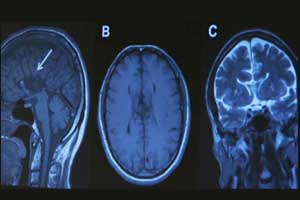- Home
- Editorial
- News
- Practice Guidelines
- Anesthesiology Guidelines
- Cancer Guidelines
- Cardiac Sciences Guidelines
- Critical Care Guidelines
- Dentistry Guidelines
- Dermatology Guidelines
- Diabetes and Endo Guidelines
- Diagnostics Guidelines
- ENT Guidelines
- Featured Practice Guidelines
- Gastroenterology Guidelines
- Geriatrics Guidelines
- Medicine Guidelines
- Nephrology Guidelines
- Neurosciences Guidelines
- Obs and Gynae Guidelines
- Ophthalmology Guidelines
- Orthopaedics Guidelines
- Paediatrics Guidelines
- Psychiatry Guidelines
- Pulmonology Guidelines
- Radiology Guidelines
- Surgery Guidelines
- Urology Guidelines
Concussions linked to elevated risk of Suicide

Survivors of injuries like concussions or skull fractures may be more than twice as likely to die by suicide as individuals without a history of traumatic brain injuries, according to new research.
The findings are drawn from six studies with a total of more than 700,000 people who experienced concussions or other traumatic brain injuries and more than 6.2 million individuals who didn’t have these diagnoses. Half of the participants stayed in the studies for two to 12 years or more.
The absolute risk of suicide was low. Less than 1 per cent of people died this way during the studies, the analysis found.
“The take-home message is that 99 per cent of people who have a concussion will not have a suicide-related outcome,” said lead author Dr Michael Fralick of the University of Toronto in Canada.
“There is a very small subset of people who are at an increased risk of suicidal thoughts, suicide attempt, or suicide,” Fralick said by email. “For anyone who is having suicidal thoughts, it is incredibly important that they seek urgent medical attention.”
Although there have been some high-profile suicides after concussions and traumatic brain injuries among professional athletes and military personnel in recent years, researchers don’t have a clear picture of the link between these injuries and suicide, Fralick and colleagues note in JAMA Neurology.
For about 80 per cent of people with concussions, neurologic symptoms clear up within a week, the study authors note. But in some patients, neurologic symptoms, including anxiety and depression, may last for years.
Severe brain injuries have long been linked to an elevated risk of lasting neurologic symptoms and suicide, researchers note.
Concussions and mild brain injuries are far more common, however, and less is known about the direct link between these events and suicide.
The current analysis focused on concussions and mild traumatic brain injuries and found these events associated with an elevated risk of suicidal thoughts and attempted suicides in addition to suicide deaths.
While the exact reason for this connection isn’t clear, it’s possible that concussions and mild traumatic brain injuries lead to lasting changes in regions of the brain associated with regulating mood and decision making, the study authors note.
The smaller studies in the analysis weren’t controlled experiments designed to prove whether or how brain injuries might directly cause suicide, however. These smaller studies also varied in length, and it’s possible that longer-term data might be needed to get a clearer picture of the lasting impact of brain injuries on mental health.
Still, the results offer fresh evidence of the need for concussion prevention and long-term physical and mental health follow-up after brain injuries, said Dr Donald Redelmeier, author of an accompanying editorial.
“This study underscores the need for more concussion prevention for regular people every day such as wearing seat-belts, using helmets, and avoiding reckless stunts,” Redelmeier, of the University of Toronto and Sunnybrook Hospital, said by email.“In addition, the study challenges popular stereotypes of masculinity that dismiss head injuries and should encourage psychiatrists to consider a past trauma history when judging a patient’s suicide risk,” Redelmeier added. “Suicide is preventable.”
For more details click on the link: doi:10.1001/jamaneurol.2018.3487

Disclaimer: This site is primarily intended for healthcare professionals. Any content/information on this website does not replace the advice of medical and/or health professionals and should not be construed as medical/diagnostic advice/endorsement or prescription. Use of this site is subject to our terms of use, privacy policy, advertisement policy. © 2020 Minerva Medical Treatment Pvt Ltd